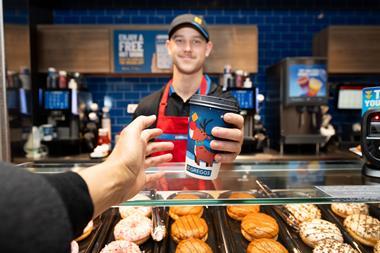A University of Sunderland student has been awarded by the King of Dubai for a charitable initiative that sees waste bread turned into animal feed.
Bread for Education, founded by Abedalrahman Al-Zghoul in 2013, takes bread leftovers from hotels, restaurants and schools and turns them into animal feed that is then sold to farmers and traders. The money made is used to provide scholarships for underprivileged students and refugees in Jordan.
Al-Zghoul received the Young Business Leaders in the Community Entrepreneurship Initiative category from His Highness Sheikh Mohammed Bin Rashid Al Maktoum at the Dubai World Trade Centre.
Since starting the initiative, Al-Zghoul has trained 17,500 students in recycling, collected more than 10,000 tons of bread and provided 1,200 scholarships to students and refugees.
“This is the first Jordanian-Arab initiative based on spreading the concepts of recycling, starting with bread, because of its symbolism and association with the conscience of the people as a basic material in every Arab house,” said Al-Zghoul.
“It also places greater responsibility on us to serve the community and the environment and to create a generation that believes in the importance of recycling.”
Last year, Abedalrahman turned his initiative into a not-for-profit organisation under the name ‘Recycling for Education’, which now includes three branches: Bread for Education, Paper for Education, and Plastic for Education, expanding its work to Kuwait, Palestine and Morocco
Al-Zghoul has won other awards for the initiative, including the Best Entrepreneurial Award by the International Youth Organisation, the Volunteer and Humanitarian Initiatives Award for Youth in Kuwait, and the Arab Creativity Award in the Community Sector in Abu Dhabi.
“Abedalrahman has demonstrated key capabilities including creativity and problem solving coupled with the pursuit of a passion and goal. It is also significant that the initiative is based on an appreciation for championing education,” added Karen Wharton, MBA Programme Leader at the University of Sunderland.
































No comments yet